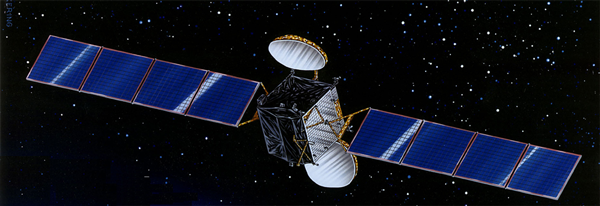Last month, DIRECTV suffered its most public and possibly longest satellite outage in a decade. It’s a tribute to the hard work of its engineering and broadcast teams that most channels were restored in about 12 hours. Full service was restored in a little more than 24 hours. That’s pretty amazing when you consider how satellites work. It’s not like they can go up there and press the red button to reset it. When something happens, they have to take very specific steps and slowly bring the satellite back to life. The satellite with the issue was DIRECTV11, which went into service in 2008. It’s been quietly doing its job for about 16 years and it’s quite possible we’ll see it keep functioning for ten more.
When something like this happens, it tends to bring out the conspiracy theories. This outage happened about a week after an outage affected AT&T’s cell phone operations. Although AT&T has no operational control over DIRECTV, they do own about 70% of DIRECTV and so a lot of folks on the internet felt like the two outages were related. Other folks wanted to tie it all into some sort of weird cyberattack strategy. We may never know the full extent of why either outage happen, but we know the basics. It wasn’t a cyberattack or anything planned. It was a case of bad things sometimes happen.
Folks wondering about the future
If you’re like me and you’ve been a DIRECTV customer and fan for 20 years or more, something like this is going to have you wondering: what’s next? We all spent about half a day wondering if that DIRECTV satellite would ever come back. It did, of course, but we didn’t know that at the time. We wondered, what would happen if a satellite did permanently fail? Other satellite services have had permanent outages or planned launches that never reached operational status. Here are some of the theories and the real facts behind them.
Theory 1: DIRECTV would try to move everyone to streaming
In the mid-2010s, when AT&T had full control over DIRECTV, it looked to some like the satellite service wasn’t long for this world. AT&T really seemed focused on launching its internet-based live TV service (which it did) and less focused on getting new customers for satellite. If there were a catastrophic satellite failure, would DIRECTV push hard to get its customers on internet instead?
Answer: That’s not how that works
There are millions of people who have DIRECTV Satellite now, and people keep the service for a lot of reasons. Maybe their internet service won’t support high-speed HD service. Maybe DIRECTV is being used at a business, and current copyright laws keep streaming out of businesses. Perhaps they just like satellite TV, as I do.
If DIRECTV tried to push its millions of subscribers to internet-only plans, it’s likely they couldn’t do it. AT&T tried a similar tactic with its U-Verse customers in the 2010s. They couldn’t make it happen, and U-Verse is still out there with a small customer base today.
Theory 2: DIRECTV would start turning off low-performing channels
The idea here is that there are channels that more people watch than others. DIRECTV could make the most of its existing capacity by turning off channels that “nobody” watches.
Answer: There are no channels that “nobody” watches
OK, I get it. You don’t like shopping channels. Or maybe it’s religious channels that you stay away from. Maybe you’re no fan of a certain flavor of news or opinion channel. But that’s you. Every channel on DIRECTV is there because people watch it. Different channels cost different amounts of money depending on demand, that’s true. But every channel has some followers. Not only that, all these companies have contracts that require DIRECTV cover them. Changing or breaking those contracts wouldn’t be easiy.
Theory 3: DIRECTV would start turning off standard-definition channels
Yes, that’s the real heart of this story. Since 2016, DIRECTV has been working to turn off standard-definition local channels in every market. They’ve moved quickly in the last 12 months, shutting off SD locals in several large cities. However, most of these efforts so far have focused on local channels found on their 19-year-old satellite at the 119 location. This satellite is really not suited for today’s uses and it’s nearing the end of its service life.
Still, you look at how DISH has essentially eliminated its SD service, and how every TV made since 2006 is HD-capable, you’d think the time is right for DIRECTV to move toward eliminating SD completely.
Answer: It will happen, but it probably won’t happen any faster
Eventually, DIRECTV will move toward ending MPEG-2 standard-definition service. It will happen. However, it’s not likely to speed up because there was a temporary outage on one satellite. Planes in flight use DIRECTV’s SD feeds as do mobile and marine customers. Turning them off completely would lead to a lot of chaos, and that’s not something anyone wants.
Yeah, but what if a satellite completely fails?
Let’s say for a moment that one of DIRECTV’s satellites did completely fail. It’s possible, given the age of some of them. That would create engineering hurdles, but it’s not going to lead to any of those doomsday scenarios. DIRECTV has launched three of the largest and most capable communications satellites ever built within the last ten years, including one in 2019. There is a lot of channel capacity built into those satellites for redundancy. Those satellites were originally designed when we all believed 4K television would be here by now. It isn’t, and that means that large chunks of all three satellites are completely unused. It wouldn’t be hard to activate that extra capacity. The change could be done in a way that most people would barely notice.
During the recent outage, key channels were moved from the (temporarily) down satellite to a newer one. Many people had access to the channels they wanted by the time network programming started. That sort of thing happens all the time and it’s something you never even notice.
The bottom line here: DIRECTV’s plans are robust. The company has some of the smartest engineers in the world planning years ahead for everything that could possibly happen. A short service outage isn’t going to derail those plans. If anything it’s proof that those plans work.





